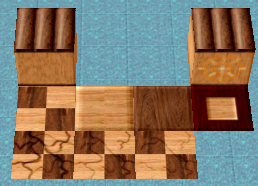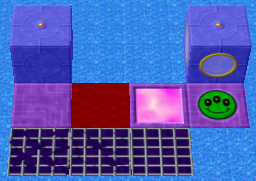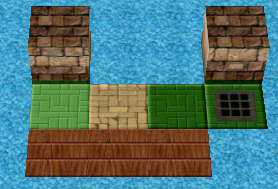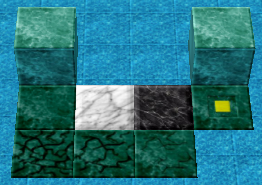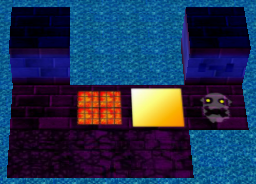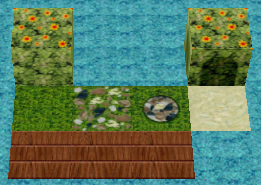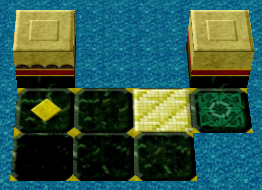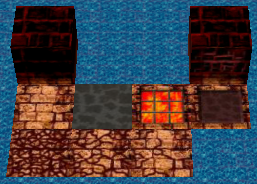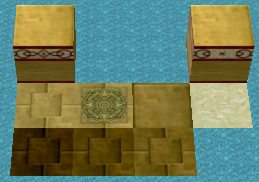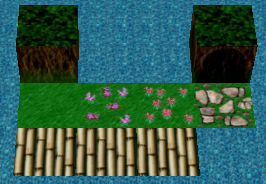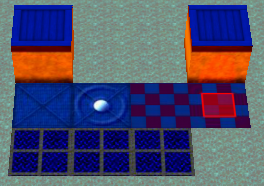Texture
A Texture is a set of images that define what the tiles of a level look like. They add a theme and visual style to levels.
Official Classic Trilogy Textures
These are the official textures made by Midnight Synergy. For every picture: The top row contains the Wall and Fake Wall textures, the middle row contains the floor A, B, C, and D textures, and the last row contains the three break tiles.
Wood
Purple
Castle
Jade
Spooky
Garden
Aztec
Cave
Sand
Return To Wonderland Platinum Textures
These textures only exist in the Platinum Edition of Return To Wonderland. Unlike the other official textures, these are packaged as Custom Textures instead of being stored in the game.
Lush
Blue
Custom Textures
Custom Textures are textures that can be created by people other than Midnight Synergy. This feature is available in the Return To Wonderland Level Editor and the Wonderland Adventures Level Editor.
Return To Wonderland Custom Textures
In Return To Wonderland, Custom Textures are stored in the Custom Textures folder in the Return to Wonderland directory. They can be applied to any custom level by pressing Shift+T and then typing in the folder name of the texture in the Level Editor.
If the game can't find the Custom Texture applied to a level, in Return To Wonderland v3.0 the game will crash, but in v3.1 the level will be styled with the official wood texture.
Custom Textures contain 13 .jpg images, usually sized 64 by 64 pixels, which are stored inside a folder. The files are:
- floor1, floor2, floor3, floor4: The 4 main floor tiles.
- wallside1a, wallside1b:Main side-of-wall textures.
- wallside2a, wallside2b: Fake side-of-wall textures.
- wallside3a,wallside3b: Deep wall textures.
- walltop: Texture for the top of the wall.
- break: Texture for the breakable floor tiles.
- sign: Texture for the sign tile.
